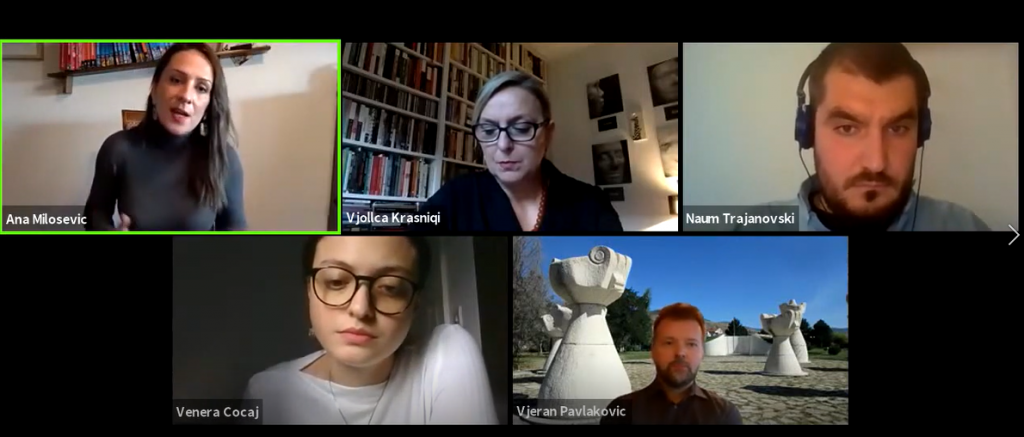
24.10.2020.
RECOM Reconciliation Network: Debate on the Politics of Memory and Remembrance Practices in Southeast Europe
HLC Kosovo, Online debate, RECOMOn October 22, 2020, Humanitarian Law Center Kosovo organized a debate on the politics of memory and remembrance practices in Southeast Europe, on behalf of RECOM Reconciliation Network. The panelists, Ana Milošević, Vjeran Pavlaković, Naum Trajanovski and Venera Çoçaj, have tried to give some answers to questions about memory politics dynamics and perspectives for the mutual future of post-Yugoslav countries. The debate was open and led by Vjollca Krasniqi.
Ana Milošević considers how EU integration process has affected memory politics in Western Balkan Countries which have shared past, separate presents and might have a future together in the EU. She explains that EU memory framework, as a consensus based on member states’ historical experiences, is exported to countries, which selectively and tactfully download certain parts of memory norms, motivated by political gains and social capital.
Vjeran Pavlaković focuses on trends in Croatian Memory Politics. He points out that commemorative practices are blurring distinct historical periods – Second World War and Homeland War into one national narrative. Political actors who used to speak differently at different places create, in his opinion, “communities of remembrance”.
Naum Trajanovski reflects on the case of North Macedonia and its relations with Bulgaria and Greece. He argues that there is a template already made and given by international stakeholders which oversees dynamic, multidirectional aspects happening on the ground. This is well demonstrated with empty phrases such as “Leave the history to historians”.
Venera Çoçaj elaborates situation in Kosovo Memory Practices. She believes that Kosovo Liberation Army remains central in commemorative narratives presenting participants as heroes, “founding fathers”. This is present both in institutional and private remembrance practices, covered by different initiatives coming from both spheres. She also analyses role of gender in remembrance practices.














